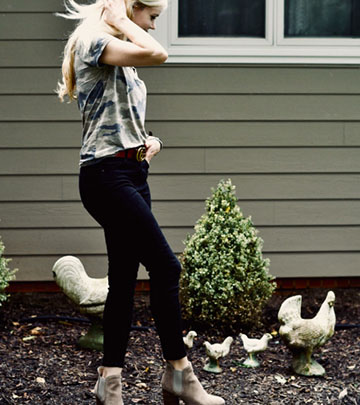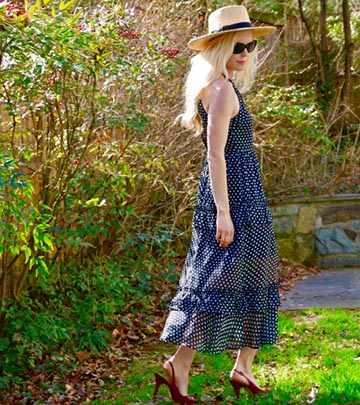
Tire-kicker or serious buyer? Once you have tried a horse for sale and are interested moving forward with purchasing it, one of the next steps is usually providing the seller with a security deposit. While not required by law, a security deposit is a monetary payment made from the buyer to the seller reflecting the buyer’s good faith or intention to move forward with the purchase of the horse. Usually, in exchange for receipt of the security deposit, the seller will take the horse off the market and the parties will enter into a sales contract and set a date for the veterinary exam of the horse to assess its soundness and health, as well as suitability for the buyer’s intended usage.
While not exhaustive, a couple of general points on security deposits relative to horse sales:
1. Amount of deposit: The seller will usually request an amount of money that reflects a percentage of the total sales price of the horse (e.g. 10%). Of course, depending on the total purchase price of the horse, this amount can vary greatly. In some cases, no deposit will be required. For example, a smaller sale (~$2500 purchase price), where a buyer decides to move forward with the purchase of a horse without expending money for a veterinary exam plus x-rays on a horse.
2. Form of the deposit: As with real estate matters, while accepting cash can be appealing, it is often best for buyers and sellers to avoid this practice as there can easily be a claim later about the amount of the desposit and receipt of the deposit. Eliminate issues that can be ripe for future miscommunication. Neither buyer or seller wants to be in a position where they cannot prove that money was exchanged and with cash payments there is an increased likelihood for misunderstandings. Likewise, it is often beneficial to ask for a security deposit in the form of a cashier’s check or certified check rather than a personal check. If a seller accepts a personal check then there is the concern that the funds will not be available when presented to the bank for payment. Also, consider photocopying cashier’s checks and provide receipts to the buyer for recordation purposes.
3. Storage of Security deposit: Check state law as to storage of a security deposit and consult with an attorney licensed in your state as appropriate. While this is generally not recommended, in some cases a seller will simply retain the check and not cash it. Other times, a security deposit will be stored in a separate account. Consider cashing security deposit check promptly to ensure that funds are available and set a definite time frame in which to complete the vetting of the horse, usually within a week.
4. Is it refundable? Check to see if the deposit is refundable if the horse does not pass the Pre-Purchase Exam (“PPE”) which is often the accepted practice. Conversely, if the horse does pass the PPE, the deposit will be put toward the total purchase price. Of course, keep in mind there is a subjective element to PPEs and it is beneficial to check the language in the sales contact on this point. Usually, the horse is considered to “pass” if it is suitable for the intended purpose (e.g. an older but slightly arthritic horse may be suitable for short stirrup for a child therefore, “passing”). Consider including in the sales contract language that if the horse “fails” the PPE that buyer must provide some documentation to the seller why the horse failed. For example, a letter from the PPE veterinarian specifically explaining why the horse did not pass. Requesting documentation such as this prevents a situation in which a buyer has cold feet and simply wants to back out of the sale. As the owner of a horse, you also likely want to know issues, if any, with your horse that may be an impediment to a sale or otherwise usage of the horse. However, since the buyer is the owner of this information discuss this point ahead of time. Regarding x-rays, if they were taken of the horse, the horse fails the PPE, and the seller wishes to wishes to see the films, consider payment of some amount (e.g. 1/2 of the cost) in order to obtain a copy of the films.
Some sellers take the position that a deposit is always refundable if the buyer is unhappy with the vetting for any reason as opposed to the horse being unsuitable for the intended purpose. In support of this position, there is the reputation of the seller to consider and a compelling argument to avoid selling a horse to a buyer who has second thoughts on whether the horse is a good fit for whatever reason.
However, some sellers take the position that the deposit should be non-refundable in consideration of the horse being unavailable for sale to another buyer during the time between receipt of the security deposit/vetting (PPE)/finalization of the purchase agreement. For this reason, it is always beneficial to vet the horse promptly (within 7 days) then there is less of an issue relative to timing and missed sales opportunities.
5. Does the horse go off the market? It depends on what the parties agree to and what the sales contact says. After deciding to purchase a horse, most buyers will set and have the PPE performed within a week of the seller’s acceptance of the offer and deposit so there is no delay and the seller is disadvantaged by missing potential sales opportunities. A seller may likely not want to pull a horse off the market for several weeks in the middle of a prime selling season without a non-refundable deposit as the seller may be passing on other serious buyers. (Note: if the seller agrees to this type of arrangement, it may be a red flag as a possible reflection that the seller is too eager to sell the horse and not worried about missed sales opportunities. Or, it can also be a reflection of a very attractive buyer). If the buyer wishes to have a refundable deposit consider fashioning the sales contract to reflect the same but that the horse stays on the market to be shown to other potential buyers and that the buyer will receive notice if another buyer is interested in purchasing the horse. However, this can create an awkward situation in which buyers are being pitted against each other. If the seller opts to go this route and continues showing the horse, he/she should disclose to other potential buyers that a security deposit has been accepted and that a sale is pending subject to the PPE before scheduling showings of the horse.
6. Timing: Vet promptly, but as often is the case with horses, expect the unexpected. As an example, after deciding to purchase a pony for her young child, a buyer set the vetting within a week and post-vetting it was discovered that the pony was quite foot sore, likely needed shoes, and that a second vetting was warranted to properly re-evaluate the soundness of the horse—extending the time period for the seller in which the horse was off the market. Consider discussing with the seller and adding into the sales contract a clause in which that the buyer will vet within x days but has additional time for a follow-up vetting subject to the recommendation of the PPE veterinarian providing some flexibility in the process. Also, assess timing of any additional trial rides in close proximity to the PPE. For example, if a buyer wants to assess potential medication usage on the horse, schedule a second trial ride the day before the vetting for purposes of a blood draw. Testing requests such as this in connection with the PPE should be disclosed to the seller.
While not all-inclusive, these are a few general points for educational purposes to consider when moving forward with the purchase of a horse.
SHOP THIS POST
Saddle: Antares Sellier France. Boots: Der-Dau. Mare Pictured: Thoroughbred, Grand Eloquence.
*Please note that the general legal principles discussed here may differ in each state, consult an attorney as appropriate, and that exceptions may exist. Laws are constantly changing and new cases decided. This post is not a substitute for legal advice and consult with a licensed professional attorney in your state to determine whether there are any unique laws to your particular state or jurisdiction. By using this blog/website, you understand that there is no attorney/client relationship between you and the blog/website publisher.




